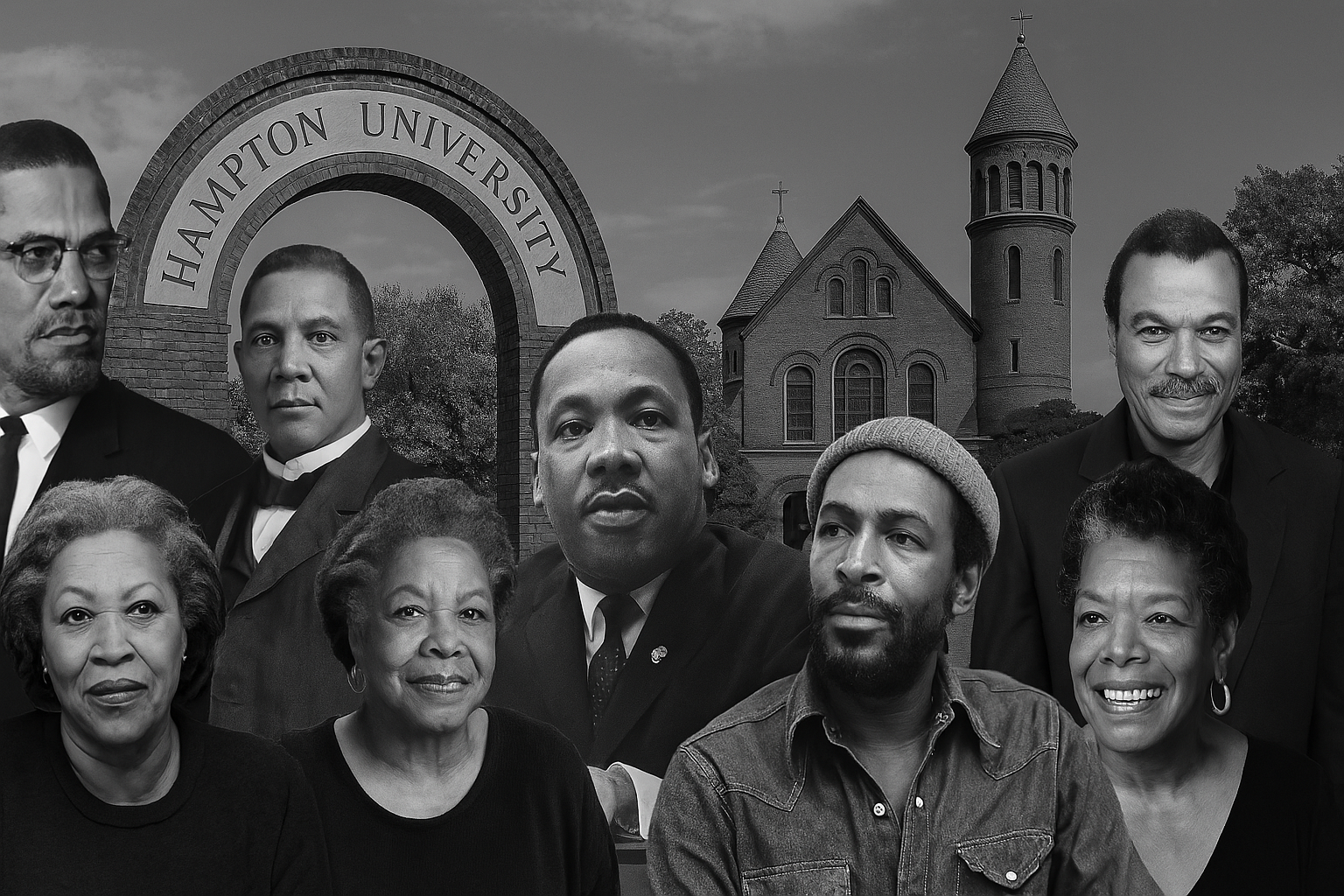Black history is a living legacy, shaped by resilience, triumph, and the pursuit of excellence. Every week holds moments that have defined the cultural, political, and social fabric of the Black experience. By reflecting on these historical milestones, we honor the pioneers, movements, and groundbreaking achievements that continue to inspire generations.
In this series, This Week in Black History, we revisit key events that have shaped the Black community and the world at large. From the literary brilliance of Toni Morrison, to the prophetic words of Dr. Martin Luther King Jr., each story serves as a testament to the strength and perseverance of Black individuals throughout history.
March 31, 1988: Toni Morrison Wins the Pulitzer Prize
On March 31, 1988, Toni Morrison won the Pulitzer Prize for Fiction for her novel Beloved. This powerful and haunting tale, which explores the traumatic legacy of slavery, cemented Morrison's reputation as one of the most iconic American writers. Beloved would go on to win numerous other awards, and Morrison's work continues to resonate as a deep exploration of race, identity, and history.
April 1, 1846: Jeremiah Haralson Was Born
Born on April 1, 1846, in Alabama, Jeremiah Haralson became the first African American elected to the Alabama State Legislature. As a prominent figure during the Reconstruction Era, Haralson worked to push for civil rights and equality, demonstrating the significant political strides African Americans were able to make following the Civil War.
April 1, 1868: Hampton University Was Founded
Hampton University, established on April 1, 1868, in Hampton, Virginia, was founded as an institution for freed African Americans. The university played a pivotal role in educating Black students during the Reconstruction Era and continues to provide high-quality education to African American students today. It is one of the nation's oldest historically Black universities and remains a beacon of academic excellence.
April 2, 1939: Marvin Gaye Was Born
Marvin Gaye was born on April 2, 1939, in Washington, D.C. Widely regarded as one of the greatest soul singers in history, Gaye’s music had a profound impact on both the music industry and social movements. His iconic albums, such as What’s Going On and Let’s Get It On, addressed critical issues such as poverty, war, and love, earning him recognition as a revolutionary voice in R&B and soul music.
April 2, 1984: Coach John Thompson Becomes the First Black Coach to Win the NCAA Basketball Tournament
On April 2, 1984, John Thompson made history as the first Black head coach to win an NCAA men’s basketball championship. Leading Georgetown University to victory, Thompson’s win was a major milestone in the integration of college sports. His legacy extends beyond his championship victory; he was also a mentor to countless players and a key figure in advancing racial equality in sports.
April 3, 1888: "Ma" Rainey Was Born
Born on April 3, 1888, in Columbus, Georgia, "Ma" Rainey is considered the "Mother of the Blues." She was one of the first Black women to record her music, and her powerful voice and evocative lyrics helped lay the foundation for the blues genre. Rainey’s influence on the music world can still be felt today, and she remains an iconic figure in the history of American music.
April 3, 1961: Eddie Murphy Was Born
On April 3, 1961, Eddie Murphy was born in Brooklyn, New York. A comedic and acting genius, Murphy’s breakout role on Saturday Night Live led to a legendary career in both stand-up comedy and Hollywood film. From Beverly Hills Cop to The Nutty Professor, Murphy’s contributions to entertainment have made him one of the most influential comedians of his generation.
April 3, 1964: Malcolm X Gives the Speech "The Ballot or The Bullet"
On April 3, 1964, Malcolm X delivered his powerful speech "The Ballot or The Bullet" in Detroit, Michigan. In this speech, Malcolm X spoke about the importance of political empowerment for African Americans, urging them to either use their votes or take action in a way that could force change. His words were a call to action during the Civil Rights Movement and remain relevant in discussions of race and political power today.
April 3, 1968: Martin Luther King Jr.'s "I've Been to the Mountaintop" Speech
On April 3, 1968, Dr. Martin Luther King Jr. delivered his famous "I’ve Been to the Mountaintop" speech in Memphis, Tennessee. This speech, one of King’s final addresses, highlighted his unwavering commitment to social justice and his support of sanitation workers on strike. Tragically, Dr. King was assassinated the next day, but his words and vision continue to inspire movements for racial equality and justice.
April 4, 1913: Muddy Waters Was Born
Muddy Waters, born on April 4, 1913, in Rolling Fork, Mississippi, is widely regarded as one of the most influential blues musicians in history. His innovations in electric blues helped shape the Chicago blues sound and had a lasting impact on rock and roll. Waters’ music bridged generations, and his legacy continues to influence artists across various genres.
April 4, 1928: Maya Angelou Was Born
Maya Angelou was born on April 4, 1928, in St. Louis, Missouri. She was an acclaimed poet, author, and civil rights activist, best known for her autobiography I Know Why the Caged Bird Sings, which tells the story of her early years in the segregated South. Angelou’s literary and public achievements earned her numerous awards and made her a beloved figure in both the African American community and the world at large.
April 5, 1856: Booker T. Washington Was Born
Born on April 5, 1856, in Hale’s Ford, Virginia, Booker T. Washington became one of the most prominent African American leaders of the late 19th and early 20th centuries. As the founder of Tuskegee Institute, Washington dedicated his life to education and improving the lives of African Americans, focusing on vocational training as a path to self-sufficiency.
April 5, 1937: Colin Luther Powell Was Born
On April 5, 1937, Colin Powell was born in Harlem, New York. Powell became the first African American to serve as the Chairman of the Joint Chiefs of Staff and later as the U.S. Secretary of State. His career was marked by his leadership in both the military and government, and he remains an iconic figure in U.S. political and military history.
April 5, 1973: Pharrell Williams Was Born
Pharrell Williams was born on April 5, 1973, in Virginia Beach, Virginia. As a producer, singer, and songwriter, Williams revolutionized music with his distinctive style. Known for hits like “Happy” and collaborations with artists such as Jay-Z and Daft Punk, Pharrell’s contributions to both music and fashion have made him a multifaceted cultural icon.
April 6, 1937: Billy Dee Williams Was Born
On April 6, 1937, Billy Dee Williams was born in New York City. He became a legendary figure in Hollywood, particularly for his portrayal of Lando Calrissian in Star Wars: The Empire Strikes Back and Return of the Jedi. Williams' career spans across television, film, and theater, making him a respected actor in the entertainment industry.


